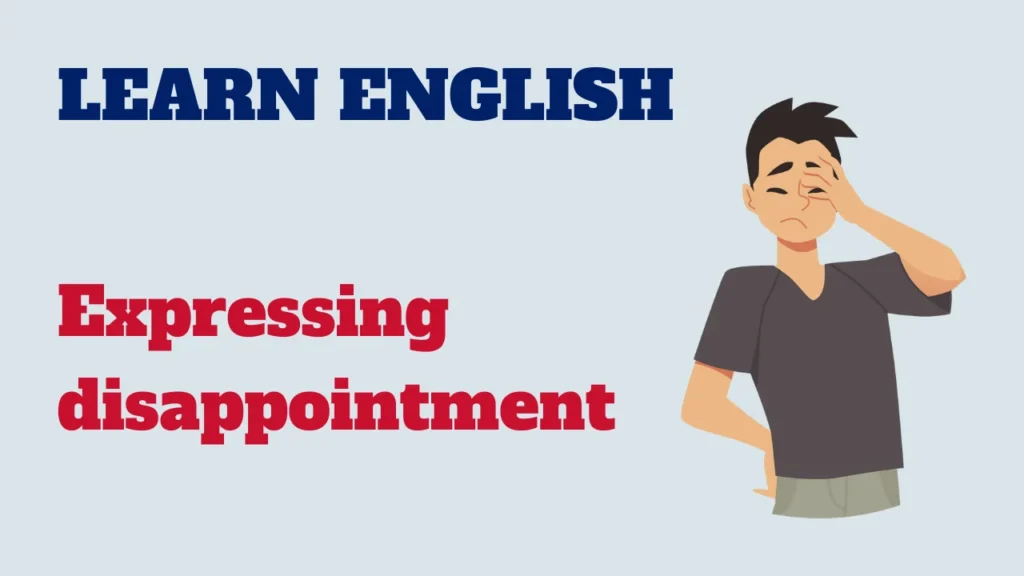Learning how to express disappointment is an important skill in communication, whether in a personal or professional context.

In this lesson, we will explore various ways to say that you are disappointed in English, using appropriate words and expressions to communicate your feelings.
I’m disappointed – Expressing personal disappointment
“I’m disappointed” is a simple expression to indicate that you feel disappointment.
Example:
I’m disappointed with the exam results.
That’s really disappointing – Indicating general disappointment
“That’s really disappointing” is a way to describe a situation or event as a source of disappointment.
Example:
It’s really disappointing that the party was canceled.
I was hoping for more – Expressing unmet expectations
“I was hoping for more” means that you had higher expectations that were not met.
Example:
I was hoping for more from this renowned restaurant.
It’s below what I expected – Indicating discrepancy between expectations and reality
“It’s below what I expected” shows that reality did not meet your expectations.
Example:
This movie is below what I expected.
I thought it would be better – Expressing negative comparison with expectations
“I thought it would be better” indicates that reality doesn’t match what you had imagined.
Example:
I thought this city would be more beautiful.
It’s a real letdown – Expressing strong disappointment
“It’s a real letdown” is used to show that the disappointment is intense.
Example:
The quality of this product is a real letdown.
I’m really upset – Indicating displeasure
“I’m really upset” expresses a feeling of displeasure related to disappointment.
Example:
I’m really upset about the flight delay.
I expected better – Expressing unfulfilled expectations
“I expected better” means that your expectations were not fulfilled.
Example:
I expected better from this service.
Expressing disappointment in English is essential for honest communication and expressing your feelings. Choose the response that best fits your feelings and the situation. Practice regularly to strengthen your communication skills in English. Happy practicing!



